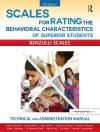Based on long-term fieldwork, six vivid ethnographies from Colombia, India, Poland, Spain and the southern and northern U.S. address the dwindling importance of labor throughout the world. The contributors to this volume highlight the growing disconnect between labor struggles and the advancement of the greater common good, a phenomenon that has grown since the 1980s. The collection illustrates the defeat and unmaking of particular working classes, and it develops a comparative perspective on the uneven consequences of and reactions to this worldwide project. Blood and Fire charts a course within global anthropology to address the widespread precariousness and the prevalence of insecure and informal labor in the twenty-first century.
表中的内容
Acknowledgments
Introduction: Toward a Global Anthropology of Labor
August Carbonella and Sharryn Kasmir
Chapter 1. Fragmented Solidarity: Political Violence and Neoliberalism in Colombia
Lesley Gill
Chapter 2. Labor in Place/Capitalism in Space: The Making and Unmaking of a Local Working Class on Maine’s “Paper Plantation”
August Carbonella
Chapter 3. Flexible Labor/Flexible Housing: The Rescaling of Mumbai into a Global Financial Center and the Fate of its Working Class
Judy Whitehead
Chapter 4. Structures without Soul and Immediate Struggles: Rethinking Militant Particularism in Contemporary Spain
Susana Narotzky
Chapter 5. The Saturn Automobile Plant and the Long Dispossession of US Autoworkers
Sharryn Kasmir
Chapter 6. “Worthless Poles” and Other Dispossessions: Toward an Anthropology of Labor in Post-Communist Central and Eastern Europe
Don Kalb
Notes on Contributors
Index
关于作者
August Carbonella is Professor of Anthropology at Memorial University of Newfoundland, Canada. He has published widely on the historical memory of the Viet Nam War, and on problems of structural violence, class, race, and citizenship in North America.












